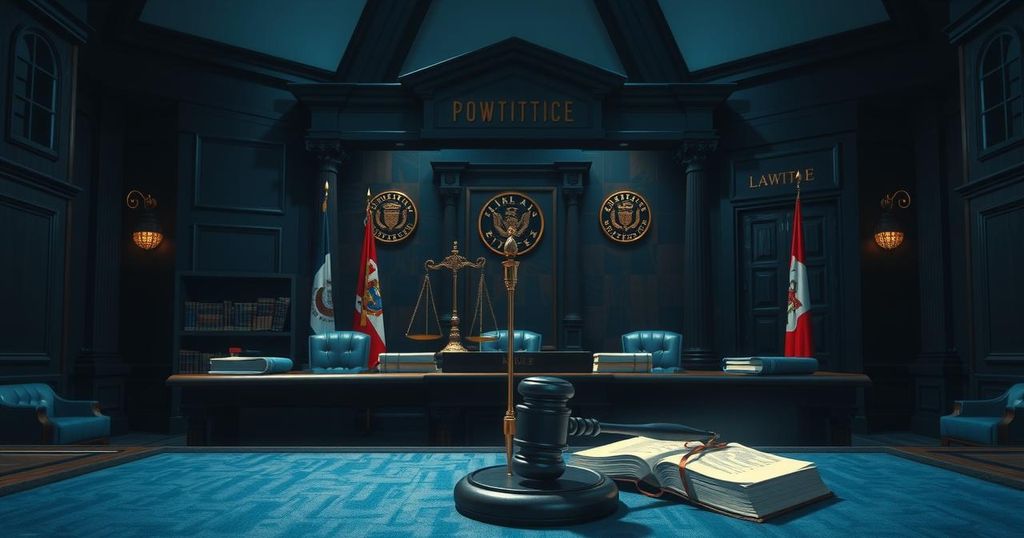Uganda’s lawmakers approved a controversial bill allowing military trials for civilians, disregarding significant criticism. The legislation follows a Supreme Court ruling against such practices, and many view it as a move to undermine democracy. Opposition members protested before the vote, fearing repression under President Museveni’s prolonged rule. Concerns grow over the implications for Uganda’s political climate heading into elections.
KAMPALA, Uganda — In a move surprising many, Ugandan lawmakers on Tuesday passed a controversial bill allowing military courts to try civilians. Supporters of the legislation claim it’s necessary, but critics say it undermines democratic norms as the country heads towards elections in 2026. The bill, which garnered significant criticism, seems to push back against a Supreme Court ruling earlier this year that stated military courts shouldn’t handle civilian cases, citing concerns over military officers’ ability to provide fair justice.
The newly approved bill allows for civilian court-martial under specific circumstances, particularly when actions are “in support of or in association with persons subject to military law.” Importantly, it stipulates that those presiding over these cases must be qualified in law, yet many see this as merely a veneer over a troubling trend.
Opposition voices, rights activists, and various groups are already labeling this legislation as a dangerous step backward. They argue it primarily targets those who criticize President Yoweri Museveni, who has maintained power for 37 years. Tensions were palpable in the Chamber as some opposition members staged a walkout in protest before the bill’s passage, denouncing it as unconstitutional.
The Uganda-based rights organization Chapter Four slammed the bill as an attempt to illegally shift judicial powers from higher courts to military courts. This judgment was echoed in public discourse, as concerns about fair trials loom large. Museveni, whose comments following a Supreme Court decision hinted at disdain for judicial authority, is likely to sign the bill into law shortly.
Additionally, his son, Gen. Muhoozi Kainerugaba, the army commander, has expressed his desire to succeed the president, raising eyebrows over potential political transitions. Many believe that Museveni might one day designate Kainerugaba as his heir, possibly bypassing a democratic procedure. In the meantime, significant political uncertainty surrounds the future, with the opposition still reeling from the imprisonment of Kizza Besigye, a veteran leader accused of treason under questionable circumstances.
Historically, Uganda has struggled to see peaceful political transitions, a legacy that raises alarm among experts as events unfold. With Museveni poised to run yet again in January 2026, questions about his party’s succession and the future of Uganda’s democracy remain decidedly unresolved.
The passage of this bill allowing military trials for civilians has sparked intense debate about Uganda’s democratic integrity. Critics fear that the move further entrenches authoritarianism under President Museveni, particularly as the nation heads towards the 2026 elections. The chilling effect on dissent and opposition voices is apparent, as concerns about the military involvement in judicial matters continue to rise. Ultimately, Uganda’s political future hangs in balance amid these developments.
Original Source: www.newsday.com






